Infertility is a disorder that is seen with a frequency of 10-15% in society. The inability of couples to have children negatively affects every aspect of their lives.
- What is Infertility?
- Is Infertility Genetic?
- Infertility Symptoms in Men
- Causes of Infertility in Men
- Male Infertility Treatment in Turkey
- Infertility Symptoms in Women
- Causes of Infertility in Women
- Infertility Treatment in Women in Turkey
- What Are the Fertility Treatments in Turkey?
- Ivf Treatment In Turkey
- IVF Benefits
- How Much Does Infertility Treatment Cost in Turkey?
- How to Choose a Clinic and Doctor?
- How to Go for IVF in Turkey?
- Benefits of Infertility Treatment in Turkey
- Fertility Treatment Methods in Turkey
- Turkey IVF Success Rate
- IVF Cliniques In Turkey
- IVF Package In Turkey
- IVF Treatment Bed Rest
- IVF Pregnancy Week-by-Week Symptoms
- Stem Cell Infertility Treatment in Turkey
- How much does fertility treatment cost in Turkey?
- How successful is IVF in Turkey?
Vimfay International Health Services is a company that has an international authorization certificate among the agencies engaged in health tourism in Turkey. Vimfay, in Turkey, brings you Infertility Treatment services at the most affordable prices.
Fill out the form now and we will inform you about Infertility Treatment.
What is Infertility?
Infertility is the condition of not getting pregnant within one year despite having regular and unprotected sexual intercourse. Infertility is defined as a disease characterized by a loss of function in the reproductive system.

Is Infertility Genetic?
Infertility can be seen due to many different reasons. Infertility in men is mostly seen due to genetic problems such as chromosomal abnormalities. It has been determined that men with infertility problems usually carry an extra X chromosome or have regional losses on the Y chromosome.
Infertility Symptoms in Men
Infertility symptoms in men vary from person to person. The most common symptoms can be listed as erection and ejaculation disorders, painful swelling in the testicles, and less semen than normal. In addition, the absence of pregnancy within 1 year despite having unprotected sexual intercourse is one of the signs of infertility.
Causes of Infertility in Men
Infertility in men can be seen due to reasons such as the absence of sperm, the abnormal structure of the sperm, the low number or movement of sperm, and the clogged duct that allows the sperm to come out. In addition, undescended testicles (cryptorchidism), varicocele, sexual dysfunction, and diabetes in men can also cause infertility.

Male Infertility Treatment in Turkey
In the treatment of infertility in men, the method of insemination is often used. Insemination is defined as the insertion of a man’s sperm into the uterus during peak fertility periods. Insemination treatment is beneficial in cases where sperm count is less than normal, or sperm motility is insufficient. In addition, insemination therapy is used in cases where sexual intercourse is prevented due to premature ejaculation or erection problems. Insemination treatment is a very easy method and pain is not felt during the procedure.
Infertility Symptoms in Women
Infertility symptoms in women vary from person to person. The most common symptoms can be listed as menstrual irregularities (dysmenorrhea), non-menstruation (amenorrhea), intense and more bleeding than normal during menstrual periods, severe pain during menstrual periods, and milk coming from the breast despite the absence of pregnancy. In addition, excessive weight (obesity) and abnormal hair growth can be seen due to various hormonal problems.
Causes of Infertility in Women
Infertility in women can be seen due to reasons such as decreased ovarian reserve, clogged fallopian tubes, problems in egg production, and an irregular menstrual cycle. In addition, some additional diseases seen in women can also cause infertility. Polycystic ovary syndrome, thyroid diseases, pituitary tumors, and cancer are some of these diseases. Women’s excessive caffeine intake, excessive weight, smoking, and alcohol consumption are also causes of infertility.
Infertility Treatment in Women in Turkey
One of the most used methods in the treatment of infertility in women is in vitro fertilization. In vitro fertilization treatment includes hormone therapy applied to increase the number of eggs produced by women. Generally, hormone pairs are used that both provide egg development and prevent early ovulation. Surgical treatment methods are also applied to women in the treatment of infertility. Endometriosis surgery, surgical removal of fibroids in the uterus, surgical treatment of obstruction in the fallopian tubes, and opening of adhesions in the uterus are among the surgical methods used in the treatment of infertility.
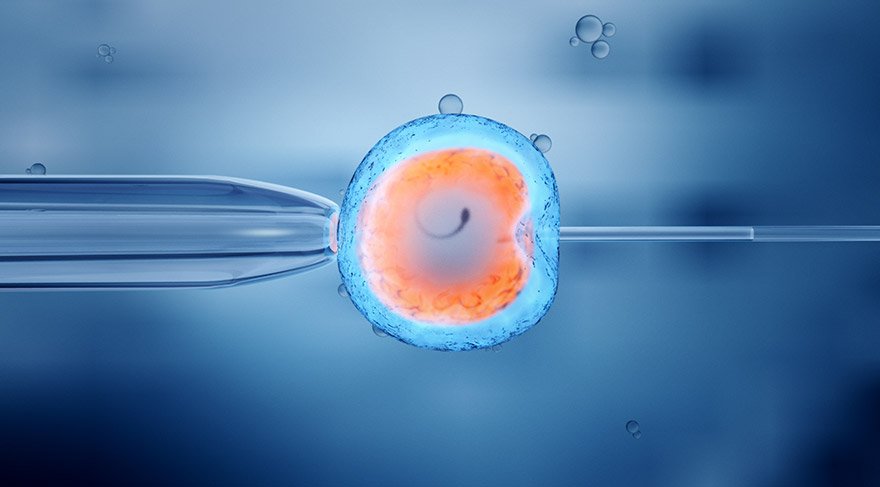
What Are the Fertility Treatments in Turkey?
The fertility treatments available in Turkey vary depending on the specific clinic and the couple’s individual needs. However, some of the most common fertility treatments in Turkey include:
- In vitro fertilization (IVF): IVF is a fertility treatment that involves fertilizing eggs with sperm outside of the body and then transferring the fertilized embryos into the uterus. IVF is one of the most effective fertility treatments available, and it can be used to treat a variety of infertility problems, including blocked fallopian tubes, endometriosis, male factor infertility, and unexplained infertility.
- Intrauterine insemination (IUI): IUI is a fertility treatment that involves placing sperm directly into the uterus around the time of ovulation. IUI is a less invasive and less expensive fertility treatment than IVF, but it is also less successful. IUI is often used for couples with mild male factor infertility or unexplained infertility.
- Intracytoplasmic sperm injection (ICSI): ICSI is a type of IVF that is used when the sperm is unable to fertilize the egg on its own. During ICSI, a single sperm is injected directly into the egg. ICSI is often used for couples with severe male factor infertility.
- Donor sperm insemination (DSI): DSI is a fertility treatment that involves using sperm from a donor to inseminate the woman. DSI is often used for couples with male factor infertility or unexplained infertility.
- Donor egg insemination (DEI): DEI is a fertility treatment that involves using eggs from a donor to inseminate the woman. DEI is often used for couples with female factor infertility, such as premature ovarian failure or endometriosis.
- Preimplantation genetic testing (PGT): PGT is a genetic test that can be performed on embryos before they are transferred to the uterus. PGT can be used to identify embryos that are free of certain genetic disorders. PGT is often used for couples with a history of genetic disorders.
In addition to these common fertility treatments, there are a number of other fertility treatments available in Turkey, such as ovulation induction, laparoscopic surgery, and tubal microsurgery. The best fertility treatment for you will depend on your individual circumstances and the cause of your infertility.
Ivf Treatment In Turkey
In recent years, Turkey has emerged as a leading destination for IVF (In Vitro Fertilization) treatment, attracting couples from all over the world who are struggling with infertility. With its state-of-the-art medical facilities, highly skilled doctors, and affordable treatment options, Turkey has positioned itself as a global hub for fertility solutions. IVF treatment in Turkey offers hope and a chance for couples to fulfill their dreams of starting a family.
One of the main reasons why Turkey has become a popular choice for IVF treatment is the high success rates achieved by its fertility clinics. Many of these clinics boast success rates that are on par with, if not higher than, those in more established countries. This can be attributed to the expertise of Turkish doctors and the advanced technology used in the clinics. Moreover, these clinics adhere to strict international standards and protocols, ensuring the safety and well-being of patients throughout their IVF journey.
Another key advantage of seeking IVF treatment in Turkey is the affordability factor. Compared to countries like the United States and the United Kingdom, where the cost of IVF treatment can be exorbitant, Turkey offers more cost-effective options without compromising on quality. The lower treatment costs, coupled with the availability of various financing options, make IVF treatment in Turkey an attractive choice for couples who may have been deterred by the high expenses associated with fertility treatments in their home countries.
Furthermore, Turkey’s geographical location serves as an advantage for international patients. It is easily accessible from Europe, Asia, and the Middle East, making it a convenient destination for couples seeking IVF treatment abroad. The country’s well-developed infrastructure, including modern airports and efficient transportation systems, ensures a smooth and hassle-free experience for patients traveling from different parts of the world.
In addition to the medical benefits, Turkey offers a unique cultural experience for couples undergoing IVF treatment. With its rich history, vibrant cities, and breathtaking landscapes, Turkey provides an opportunity for patients to combine their infertility journey with a memorable vacation. This holistic approach to IVF treatment, combining medical excellence with a fulfilling travel experience, sets Turkey apart as an ideal destination for couples seeking infertility solutions.
In conclusion, IVF treatment in Turkey has gained significant recognition as a top choice for couples struggling with infertility. With its high success rates, affordability, accessibility, and cultural appeal, Turkey has established itself as a premier destination for IVF treatment. As more couples turn to this thriving industry for their infertility needs, Turkey continues to offer hope and possibilities for those yearning to start a family.
IVF Benefits
In vitro fertilization (IVF) is an infertility treatment that helps couples conceive. It involves fertilizing eggs with sperm outside of the body and then transferring the infertility embryos into the uterus. IVF can be used to treat a variety of infertility problems, including:
- Blocked fallopian tubes
- Endometriosis
- Ovarian dysfunction
- Male factor infertility
- Unexplained infertility
IVF has a number of benefits over other infertility treatments, including:
- High success rates: IVF has the highest success rates of any infertility treatment. The average success rate for IVF is about 30%, but it can vary depending on the couple’s age and other factors.
- Ability to overcome a variety of infertility problems: IVF can be used to treat a wide range of infertility problems, both male and female. This makes it a good option for couples who have not been successful with other infertility treatments.
- Ability to select healthy embryos: IVF allows couples to select healthy embryos for transfer to the uterus. This can help to reduce the risk of miscarriage and birth defects.
- Ability to freeze embryos: IVF embryos can be frozen and stored for later use. This allows couples to have more than one child from a single IVF cycle.
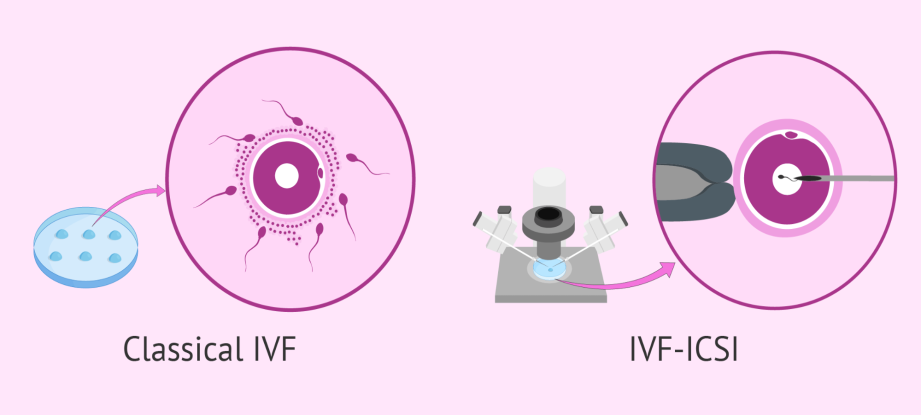
How Much Does Infertility Treatment Cost in Turkey?
The cost of infertility treatment in Turkey varies depending on the type of treatment you need and the clinic you choose. However, in general, infertility treatment in Turkey is significantly more affordable than in many other countries, including the United States and the United Kingdom.
Here is a breakdown of the average costs of some common infertility treatments in Turkey:
- In vitro fertilization (IVF): €3,000 to €4,000 per cycle
- Intrauterine insemination (IUI): €500 to €1,000 per cycle
- Intracytoplasmic sperm injection (ICSI): €500 to €1,000 per cycle
- Donor sperm insemination (DSI): €500 to €1,000 per cycle
- Donor egg insemination (DEI): €2,000 to €3,000 per cycle
- Preimplantation genetic testing (PGT): €1,000 to €2,000 per cycle
It is important to note that these are just average costs. The actual cost of your treatment may be higher or lower depending on your individual circumstances. For example, if you need multiple cycles of treatment, or if you require additional services such as embryo freezing or frozen embryo transfer, the cost of your treatment will increase.
If you are considering infertility treatment in Turkey, it is important to get quotes from multiple clinics before you make a decision. This will help you to ensure that you are getting the best possible price for your treatment.
Additionally, there are a number of things you can do to save money on infertility treatment in Turkey, such as:
- Consider using a clinic that offers package deals. This can save you money on the overall cost of your treatment.
- Ask about discounts for multiple IVF cycles or for paying in full upfront.
- Look for clinics that offer financial assistance programs.
- Consider using donor sperm or eggs. This can be a more affordable option than using your own sperm and eggs.
Infertility treatment can be a life-changing experience for couples who are struggling to conceive. However, it is important to remember that infertility treatment is not a guarantee of pregnancy. The success rates of infertility treatment vary depending on a number of factors, including the couple’s age and the cause of their infertility.
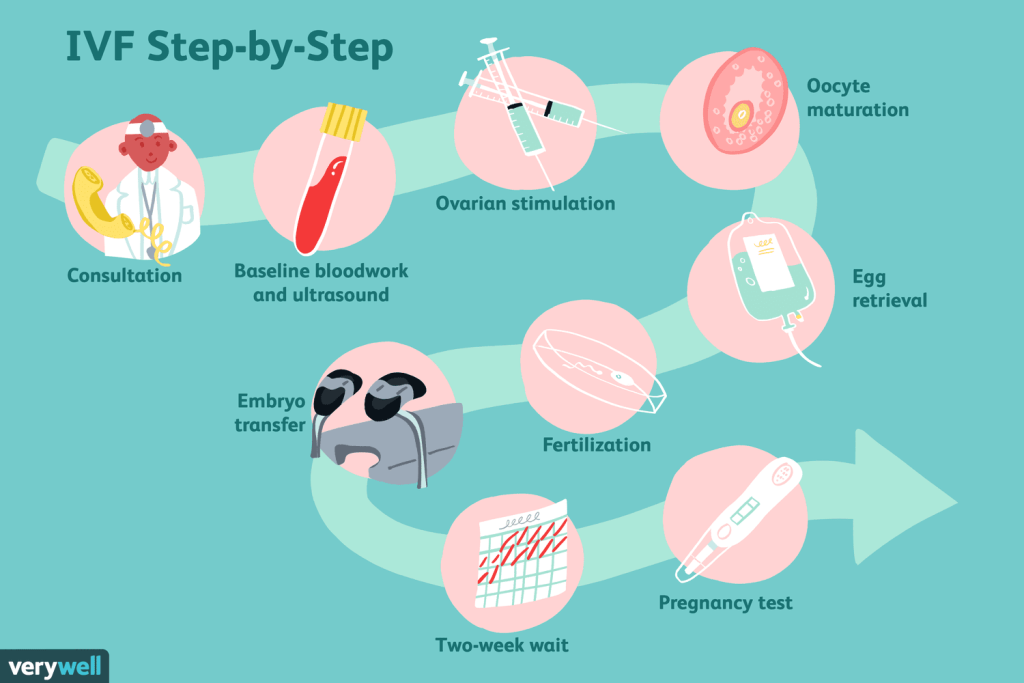
How to Choose a Clinic and Doctor?
If you are considering infertility treatment in Turkey, it is important to choose a reputable clinic and doctor. There are a number of factors to consider when choosing a clinic and doctor, including:
- Experience: The clinic and doctor you choose should have experience in treating the specific type of infertility you are facing.
- Success rates: The clinic you choose should have high success rates for fertility treatment.
- Cost: The cost of fertility treatment can vary depending on the clinic and the type of treatment you need. It is important to get quotes from multiple clinics before you make a decision.
- Location: The clinic you choose should be conveniently located for you.
- Language barrier: If you do not speak Turkish, it is important to choose a clinic where the staff speaks English.
- Accreditation: The clinic you choose should be accredited by a reputable organization, such as the Joint Commission International (JCI).
Here are some tips for choosing an infertility clinic and doctor in Turkey:
- Ask your doctor for recommendations.
- Do your research online. Read reviews of different clinics and doctors.
- Schedule consultations with multiple clinics. This will give you a chance to learn more about the different options available to you and to find a clinic and doctor that you are comfortable with.
Here are some questions to ask when choosing an infertility clinic and doctor in Turkey:
- What is your experience in treating my specific type of infertility?
- What are your success rates for fertility treatment?
- What are the costs of fertility treatment at your clinic?
- Do you have a language barrier?
- Is your clinic accredited by a reputable organization?
Once you have chosen an infertility clinic and doctor, it is important to trust them and to follow their instructions carefully. Infertility treatment can be a complex process, but it can also be a life-changing experience.
How to Go for IVF in Turkey?
- Choose a clinic and doctor. There are many reputable fertility clinics in Turkey, so it is important to do your research and choose one that is right for you. Consider factors such as experience, success rates, cost, location, and language barrier.
- Book a consultation. Once you have chosen a clinic, schedule a consultation with the doctor. This will give you a chance to discuss your fertility history, treatment options, and costs.
- Get tested. Before you can start IVF treatment, you will need to undergo a series of tests to assess your fertility and overall health. These tests may include blood tests, semen analysis, and imaging tests.
- Start treatment. Once your tests are complete and you have discussed your treatment plan with the doctor, you can start IVF treatment. The IVF process typically takes several weeks or months to complete.
- Travel to Turkey. If you are traveling to Turkey for IVF treatment, you will need to book your flights and accommodation in advance. You should also make sure that you have all of the necessary travel documents, such as a passport and visa.
- Undergo treatment. Once you arrive in Turkey, you will meet with your doctor again to discuss your treatment plan and to start the IVF process.
- Follow your doctor’s instructions. It is important to follow your doctor’s instructions carefully throughout the IVF process. This will help to increase your chances of success.

Benefits of Infertility Treatment in Turkey
If you are considering infertility treatment, Turkey is a great option to consider. There are many benefits to choosing Turkey for infertility treatment, including:
- High success rates: Turkey has some of the highest success rates for infertility treatment in the world. This is due to a number of factors, including experienced and qualified doctors, state-of-the-art facilities, and personalized care.
- Affordable costs: Infertility treatment in Turkey is significantly more affordable than in many other countries, including the United States and the United Kingdom. This makes it a good option for couples on a budget.
- Experienced and qualified doctors: Turkey has a large number of experienced and qualified infertility doctors. Many of these doctors have trained and worked in leading hospitals and clinics around the world.
- State-of-the-art facilities: Turkish infertility clinics are equipped with state-of-the-art facilities and equipment. This ensures that patients receive the highest quality of care.
- Short waiting times: Waiting times for infertility treatment in Turkey are much shorter than in many other countries. This means that couples can start their treatment sooner and have a better chance of achieving their desired outcome.
- Personalized care: Infertility clinics in Turkey offer personalized care to each patient. This means that patients will receive a treatment plan that is tailored to their individual needs.
- Easy access to treatment: Turkey is a popular tourist destination, so there are many flights and travel options available. This makes it easy for international patients to access infertility treatment in Turkey.
- No language barrier: Many Turkish infertility doctors and nurses speak English fluently. This makes it easy for international patients to communicate with their care team.
- Beautiful country to visit: Turkey is a beautiful country with a rich history and culture. Couples can combine their infertility treatment with a vacation to enjoy the many attractions that Turkey has to offer.
In addition to the benefits listed above, Turkey also offers a number of other advantages for couples seeking infertility treatment, such as:
- Legal framework: Turkey has a comprehensive legal framework for infertility treatment. This protects the rights of patients and ensures that they receive high-quality care.
- Ethical standards: Turkish infertility clinics adhere to the highest ethical standards. This means that patients can be confident that they are receiving safe and effective treatment.
- Transparency: Turkish infertility clinics are transparent about their costs and success rates. This allows couples to make informed decisions about their treatment.
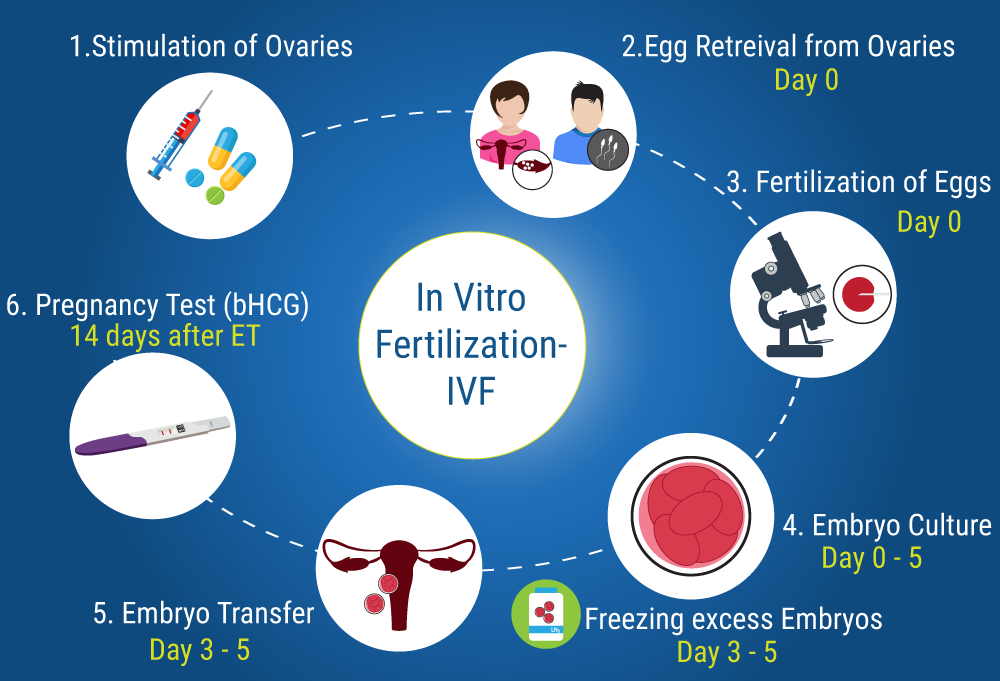
Fertility Treatment Methods in Turkey
Turkey is a popular destination for fertility treatment, due to its high success rates, affordable costs, and experienced and qualified doctors. There are a variety of fertility treatment methods available in Turkey, including:
- In vitro fertilization (IVF): IVF is the most common fertility treatment method in Turkey. It involves fertilizing eggs with sperm outside of the body and then transferring the fertilized embryos into the uterus.
- Intracytoplasmic sperm injection (ICSI): ICSI is a type of IVF that is used for couples with severe male factor infertility. It involves injecting a single sperm cell directly into the egg.
- Preimplantation genetic testing (PGT): PGT is a test that can be performed on embryos before they are transferred to the uterus. It can be used to identify embryos with genetic abnormalities.
- Donor sperm insemination (DSI): DSI is a fertility treatment method in which sperm from a donor is used to inseminate a woman’s eggs.
- Donor egg insemination (DEI): DEI is a fertility treatment method in which eggs from a donor are used to fertilize a man’s sperm.
- Gestational surrogacy: Gestational surrogacy is a fertility treatment method in which a woman carries a pregnancy for another couple.
The best fertility treatment method for a couple will depend on their individual circumstances. A fertility doctor will be able to assess the couple’s fertility and recommend the most appropriate treatment method.
Here is a more detailed overview of each fertility treatment method:
In vitro fertilization (IVF)
IVF is a complex process that involves several steps:
- Ovulation induction: The woman’s ovaries are stimulated to produce multiple eggs.
- Egg retrieval: The eggs are removed from the ovaries using a minor surgical procedure.
- Fertilization: The eggs are fertilized with sperm in a laboratory.
- Embryo culture: The fertilized embryos are grown in a laboratory for a few days.
- Embryo transfer: One or more embryos are transferred to the woman’s uterus.
Intracytoplasmic sperm injection (ICSI)
ICSI is a type of IVF that is used for couples with severe male factor infertility. In ICSI, a single sperm cell is injected directly into the egg. This ensures that fertilization occurs, even if the sperm are weak or abnormal.
Preimplantation genetic testing (PGT)
PGT is a test that can be performed on embryos before they are transferred to the uterus. It can be used to identify embryos with genetic abnormalities. This can help to increase the chances of a successful pregnancy and reduce the risk of miscarriage and birth defects.
Donor sperm insemination (DSI)
DSI is a fertility treatment method in which sperm from a donor is used to inseminate a woman’s eggs. DSI is often used for couples with male factor infertility or when the woman is unable to produce her own eggs.
Donor egg insemination (DEI)
DEI is a fertility treatment method in which eggs from a donor are used to fertilize a man’s sperm. DEI is often used for couples with female factor infertility, such as premature ovarian failure or ovarian cancer.
Gestational surrogacy
Gestational surrogacy is a fertility treatment method in which a woman carries a pregnancy for another couple. The surrogate is implanted with an embryo that has been created using the eggs and sperm of the intended parents.
Which fertility treatment method is right for you?
The best fertility treatment method for a couple will depend on their individual circumstances. A fertility doctor will be able to assess the couple’s fertility and recommend the most appropriate treatment method.
If you are considering fertility treatment in Turkey, it is important to do your research and choose a reputable clinic. You should also make sure that the clinic is licensed and accredited.
Turkey IVF Success Rate
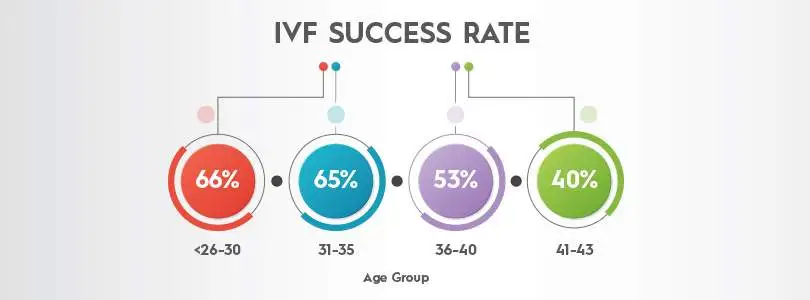
IVF Cliniques In Turkey
In recent years, Turkey has emerged as a leading destination for couples seeking fertility treatment, particularly in the field of in vitro fertilization (IVF). With its state-of-the-art clinics, highly skilled medical professionals, and affordable treatment options, Turkey has become a haven for individuals from around the world who are struggling to conceive.
IVF clinics in Turkey offer a comprehensive range of services, including fertility assessments, egg and sperm donation, embryo freezing, and genetic testing. These clinics boast cutting-edge technologies and adhere to international medical standards, ensuring that patients receive the highest quality care. Moreover, the country’s strategic location, bridging Europe and Asia, makes it easily accessible for individuals seeking treatment from both continents.
One of the key factors that make IVF clinics in Turkey so appealing is the significantly lower cost compared to other countries. The affordability of treatment, coupled with the high success rates, has attracted countless couples who may have otherwise been unable to afford such procedures elsewhere. Additionally, Turkey’s warm hospitality, rich culture, and beautiful landscapes provide a comforting and supportive environment for patients throughout their fertility journey.
Furthermore, the expertise of Turkish medical professionals in the field of reproductive medicine is widely recognized. Many doctors and specialists have received training and education from prestigious institutions abroad, ensuring that patients receive top-notch care and personalized treatment plans. The compassionate and empathetic approach of these professionals further enhances the overall experience for patients, making them feel valued and supported during this emotionally challenging time.
In conclusion, IVF clinics in Turkey offer a unique combination of advanced medical technology, affordable treatment options, and highly skilled professionals. As a result, couples from all corners of the globe are flocking to this beautiful country to realize their dreams of starting a family. With its exceptional success rates and warm hospitality, Turkey truly stands out as a leading destination for fertility treatment.
IVF Package In Turkey
In recent years, Turkey has emerged as a leading destination for individuals and couples seeking fertility treatment, particularly in the field of in vitro fertilization (IVF). With its state-of-the-art medical facilities, highly skilled doctors, and affordable prices, Turkey offers a comprehensive IVF package that attracts patients from all over the world.
The IVF package in Turkey provides a cost-effective solution for those struggling with infertility. Compared to other countries, the prices for IVF treatment in Turkey are significantly lower, making it an attractive option for individuals seeking affordable fertility solutions. This affordability does not compromise the quality of care, as Turkey boasts a well-established healthcare system and world-renowned fertility clinics equipped with the latest technology and techniques.
Moreover, Turkey’s IVF package offers a holistic approach to fertility treatment, ensuring that patients receive comprehensive care throughout their entire journey. From initial consultations and diagnostic tests to the actual IVF procedure and post-treatment follow-ups, every step is meticulously planned and executed. The package includes all necessary medications, laboratory tests, ultrasounds, and consultations, providing patients with peace of mind and a hassle-free experience.
In addition to its cost-effectiveness, another advantage of choosing the IVF package in Turkey is the opportunity to combine fertility treatment with a memorable vacation. Turkey is a country rich in history, culture, and natural beauty. Patients can take advantage of their stay by exploring the vibrant city of Istanbul, visiting ancient ruins in Ephesus, or enjoying the breathtaking beaches along the Mediterranean coast. This unique combination of medical treatment and tourism has made Turkey an increasingly popular destination for medical tourism.
In conclusion, the IVF package in Turkey offers an affordable and comprehensive solution for individuals and couples seeking fertility treatment. With its competitive prices, high-quality care, and the chance to experience the beauty of Turkey, it is no wonder that more and more people are choosing this destination for their IVF journey.

IVF Treatment Bed Rest
In vitro fertilization (IVF) has revolutionized the world of assisted reproductive technology, offering renewed hope for couples struggling with infertility. This cutting-edge procedure involves combining an egg and sperm outside the body, followed by the transfer of the resulting embryo into the uterus. While IVF has significantly increased the chances of conception, it is essential to recognize the importance of bed rest during this delicate process.
Bed rest following IVF treatment has emerged as a critical component in optimizing the success rates of the procedure. This period of rest allows the body to recover from the physical and emotional stress of the treatment, ensuring the best possible conditions for implantation and early embryo development. The act of lying down for an extended period after the embryo transfer is believed to facilitate the attachment of the embryo to the uterine lining, increasing the chances of a successful pregnancy.
During bed rest, the body is in a relaxed state, minimizing any potential movement or physical strain that could disrupt the implanted embryo. It also provides an opportunity for the body to focus its energy on healing and nurturing the embryo, creating an optimal environment for implantation. Additionally, bed rest can help reduce stress and anxiety, factors known to negatively impact fertility outcomes.
While the duration of bed rest may vary depending on individual circumstances and medical advice, it is generally recommended for a period of 24 to 48 hours following the embryo transfer. However, it is crucial to strike a balance between rest and maintaining a healthy lifestyle. Gentle movements, such as stretching or light walking, can promote blood circulation and alleviate any discomfort caused by prolonged immobility.
In conclusion, bed rest after IVF treatment plays a vital role in enhancing the chances of a successful pregnancy. By providing the body with the necessary time and conditions for implantation, bed rest optimizes the outcomes of this groundbreaking reproductive technology. However, it is essential to consult with healthcare professionals for personalized guidance on the duration and intensity of bed rest, ensuring the best possible results for each individual undergoing IVF.
IVF Pregnancy Week-by-Week Symptoms
In vitro fertilization (IVF) has revolutionized the world of assisted reproductive technology, offering hope to countless couples struggling with infertility. This remarkable procedure involves the fertilization of eggs outside the woman’s body, followed by the transfer of the resulting embryos into her uterus. While IVF offers a promising path to parenthood, it also brings with it a rollercoaster of emotions and physical changes for the expectant mother. Understanding the various symptoms that may arise during each week of an IVF pregnancy can help alleviate anxiety and provide reassurance.
During the early weeks of an IVF pregnancy, many women experience symptoms similar to those of a natural conception. These can include breast tenderness, fatigue, and mild cramping. As the pregnancy progresses, some women may notice an increase in their sense of smell or have a heightened sensitivity to certain foods or odors. Nausea and morning sickness, although not universal, can also make an appearance during this time.
Moving into the second trimester, the symptoms of an IVF pregnancy often become more pronounced. Many women experience a boost in energy levels and a decrease in nausea. The baby bump may start to show, and the expectant mother may feel the first flutters of fetal movement. Additionally, hormonal changes can lead to changes in the skin, such as acne or darkening of the nipples.
By the third trimester, the physical changes become more evident as the baby grows rapidly. Backaches, swollen feet, and increased urination become common complaints. Braxton Hicks contractions, which are practice contractions that help prepare the body for labor, may also occur. As the due date approaches, the expectant mother may experience an increase in pelvic pressure and frequent trips to the bathroom.
In conclusion, an IVF pregnancy is a unique journey that comes with its own set of symptoms and changes. Being aware of these week by week can provide comfort and understanding for those embarking on this incredible path to parenthood.

Stem Cell Infertility Treatment in Turkey
In cases where infertility is due to insufficient ovarian reserve, the ovarian reserve can be increased by applying stem cell therapy. Stem cell therapy is one of the newest methods that can be used to increase ovarian reserve. In this method, stem cells are first taken from the patient and reproduced in the laboratory environment. Then the reproduced stem cells are given to the patient again. Stem cells are given to the patient help to eliminate infertility by increasing the egg reserve.
How much does fertility treatment cost in Turkey?
In vitro fertilization (IVF): €3,000 to €4,000 per cycle
Intrauterine insemination (IUI): €500 to €1,000 per cycle
Intracytoplasmic sperm injection (ICSI): €500 to €1,000 per cycle
Donor sperm insemination (DSI): €500 to €1,000 per cycle
Donor egg insemination (DEI): €2,000 to €3,000 per cycle
Preimplantation genetic testing (PGT): €1,000 to €2,000 per cycle
How successful is IVF in Turkey?
The success rates of IVF in Turkey are comparable to those in other developed countries. The average success rate for IVF in Turkey is around 50% for women under the age of 35 and around 30% for women over the age of 40.

Vimfay International Health Services